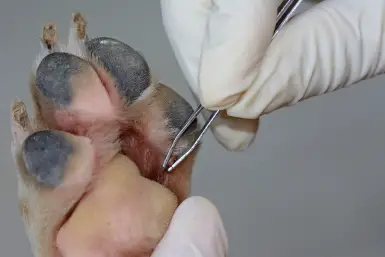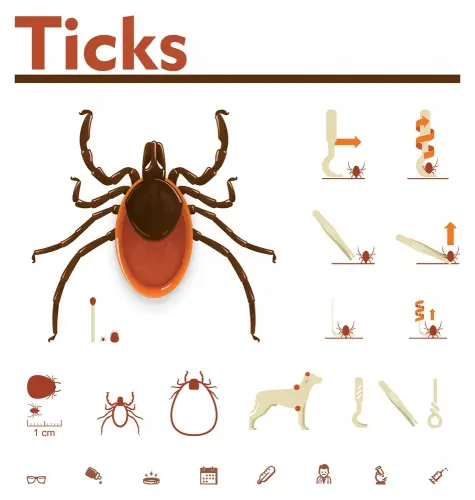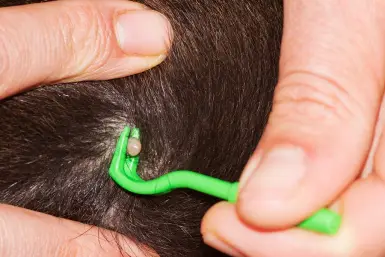
Browse Categories
- Dog Boot Camps
- Test
- Test
- Dogs Please Clicker Training
- Pet Insurance Comparison
- Exercising Pets With An E Scooter
- 10 Reasons Why Guinea Pigs Are Wholesome Little Pets
- Why You Should Use a Shed to House Your Pet
- How can Dog Owners Keep their Carpets Clean?
- How to Keep Your House in Order With Large Pets
- What is the Best Way to Feed a Puppy to Keep Them Healthy
- Pets Please
- All Animals and Pets
- Dogs and Puppies
- Cats and Kittens
- Birds
- Fish
- Reptiles
- All Other Small Pets
- Claws 'N' Paws Events
- PetsInLimbo/Greys4PetsInc.
News Search
PetsPlease News and Advice
How to Remove Ticks off Your Pet

Adventurous pets are prone to catching ticks during summer when these pesky little vampires lay eggs in warmer temperatures. Ticks have sticky shells that help them cling on unsuspecting victims, even on humans. After feeding off its victim, it drops off after fully engorging. In time, it clings on to another victim and transmits whatever disease-causing bacteria it carries.
Facilitating prompt removal of a tick can be done with simple tweezers. But keeping the pets calm in this simple process can be challenging. Make sure that your pet has had its exercise, especially dogs. Give it water and food to coax it into a satisfied calm state. Wait until it has finished eating and drinking. Meanwhile, get ready with a pair of tweezers, gloves, disinfectant, cotton swabs and a bottle with some alcohol in it.
When you see that the pet is starting to lounge around, approach it before it sleeps. Remember to wear gloves and let your dog smell it first. Give your animal companion a good scratching or rubbing. Direct your attention to the ticks, searching every nook it can be. With a pair of tweezers, grasp the head of the tick. This is the part that is embedded in the skin. Gently pull the head off followed by the body. The tick can release its grasp when it is slowly pulled but it will take about 20-30 seconds. Leaving traces of the tick can cause infection since it will still be lodged into your pet’s skin.
Carefully dab disinfectant on the bitten area. During the process, relax and talk your pet. They will respond to whatever energy you give off so a panic mode will only cause commotion. Do not discard the tick carelessly by tossing it just anywhere. It must be placed in a bottle with alcohol to kill it. Preserve it and label with the date it was found. This is necessary so that the vet can identify the kind of tick and if it carried infection to the household.
Observe your pet for any signs of sickness and immediately consult your veterinarian when your pet becomes ill, early treatment can stop tick-borne diseases.
Applying a tick treatment is highly recommended to prevent the deadly tick!


